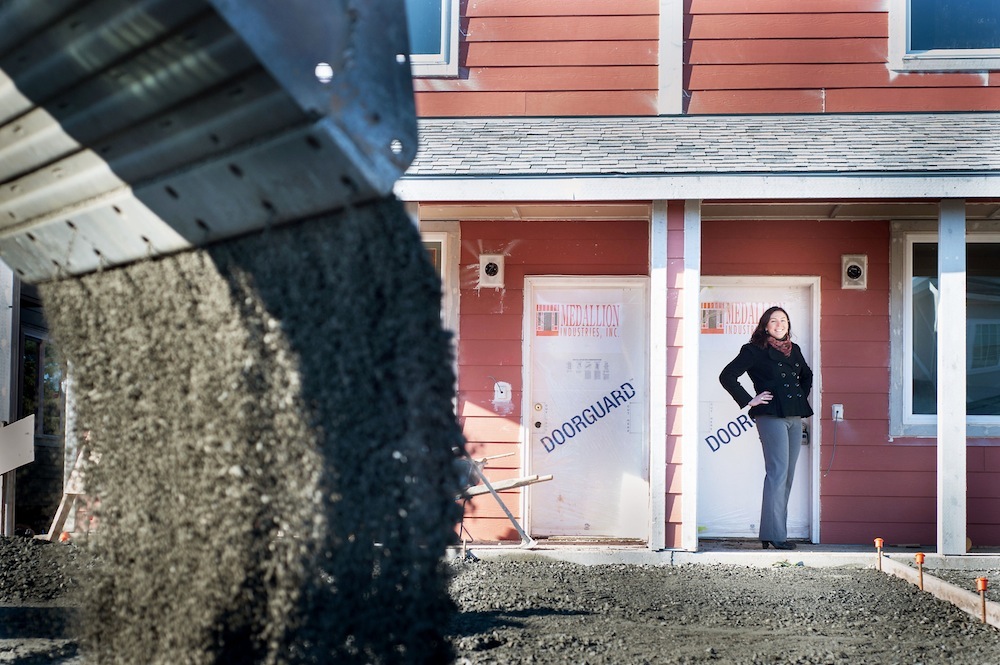The late John D. Gray made his first fortune selling chainsaw equipment to the Oregon timber industry during the post-World War II housing boom. He went on to develop the iconic resorts of Salishan, Sunriver and Skamania Lodge. His legacy, however, became not his contribution to upscale resorts, but the large sum he donated to Habitat for Humanity of Oregon to buy up abandoned land at rockbottom rates.
Shannon Tennant, Habitat’s executive director, stands at the entrance of a new home in a forty-five-unit subdivision in east Portland, a home that is partly funded by Gray’s donation. The new neighborhood was deserted by a private developer during the housing crash, she explains. The homes here are part of the largest Habitat project in Oregon’s history, and a symbol of the nonprofit’s capital discipline in seizing opportunities in a down market.
“These are homes for the working underclass—people doing all the right things, but who would never be able to afford their own home,” says Tennant. “Out here, we have future neighbors helping to build one another’s homes, making the kind of connections with each other that really build community.” Habitat’s beneficiaries make up just 30 to 60 percent of the median income for a given area.
Tennant’s cherubic face and propensity to laugh provide a bright contrast with her impassioned, eloquent talk of the future. At age 38, she’s recently stepped in as the head of the umbrella organization that supports Oregon’s thirty-two affiliates. After working within Habitat for thirteen years, she started with Salem Area Habitat in 1999 via the AmeriCorps VISTA (Volunteers in Service to America) program. She was soon hired as the community development manager, a position she used to help foster 300 percent more homes sold in the past nine years. After transferring to the Portland Metro/ East Habitat in 2007, her strategic planning skills helped the organization grow from selling fifteen homes a year when she started, to twenty-five in 2012.
“I believe very strongly that a healthy and affordable place to live is the key to ending generational poverty,” she says, noting that kids who grow up in the same place are 60 percent more likely to go on to receive post-secondary education.
Although she is originally from Ohio, Tennant lived in Salem for two years during elementary school, and earned a masters in philosophy at the University of Oregon. In Oregon, she feels a strong connection to the state and Habitat’s mission.
“I love that we’re empowering people to create something tangible, that they can touch and see,” says Tennant. “I’ve watched so many kids’ and parents’ self-esteem increase as a result of being surrounded by volunteers who are working with them to build their new home.” written by Laurel Brauns photo by Aubrie LeGault Habitat for Humanity
Get involved at habitatoregon.org









